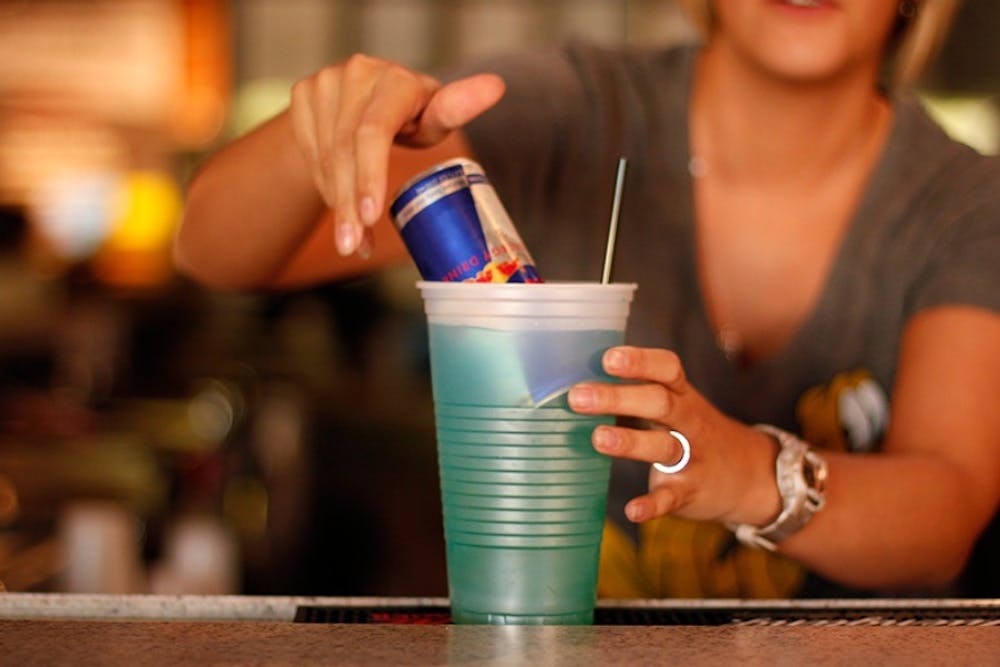By Jack Reyering, For The Miami Student
Another semester underway in Oxford, another laundry list of drinking incidents to answer for.
It happens every year when the winter term begins. The excitement of returning to campus, coupled with the kick off of Greek recruitment, encourages students to drink like there's no tomorrow.
Stories have painted Oxford as a college town with a drinking problem. The administration has released statements and warnings so it appears they are attempting to address this.
But the truth is, Miami doesn't want to go to rehab. Without an alcohol-driven extracurricular life, Miami would fail as a university.
Take a step back and think about it. Take away the bar scenes, Greek life and loosely enforced drinking laws of Oxford, and what else does Miami have to offer its students?
When you really think about it, not much.
Miami is located in the middle of Nowhere, Ohio. It's 45 minutes away from the next major city, Cincinnati, which isn't really a viable option for nights out.
Billed as a "public Ivy," Miami really is just a slightly above-average university. Sure, the business school is good, but there are several other great business schools surrounding Oxford (IU, OSU and Xavier, for instance). When you weigh "above-average" against the fact that Miami is the most expensive public school in Ohio, it's hard to justify doling out the extra dough.
Most of the sports teams are mediocre, tuition is a rip-off and the Wi-Fi sucks.
And yet, every year thousands of students, many of them out-of-state, choose to attend Miami University in Oxford, Ohio - the academically average, overly expensive university in the middle of nowhere.
Why? If you're a student at Miami, you know exactly why.
Enjoy what you're reading?
Signup for our newsletter
The drinking. Beat the Clock, Broken Clock, Trashcans, Redskins, 90s night, Wine Night. The list goes on.
Students from well-off families from all across the Midwest pay a lot of money for that unique "I can't remember, but I'll never forget" college experience.
They get fake IDs and use them because the bars don't stop them. They join Greek organizations to meet more people like them who love to party as much as possible.
The administrators know this. It's their job to know.
But they also know how to give the illusion of curbing the problem. Yes, Miami cares about the safety of its students for the reason that any entity cares about the safety of its assets. Good press vs. bad press.
When the news teams come to Oxford this March to do a story about Green Beer Day - and they will most certainly come - they'll likely take the angle that students here are out-of-control alcoholics.
Miami loves this kind of press. It can respond with its cookie-cutter statements that outline how the administration is addressing the issue to please mom and pop.
But in reality, Miami hopes little Susie and Jimmy come across a news story about Miami University on Facebook that shows hundreds of good-looking college students having a blast - drinking themselves to oblivion on a Thursday morning, before the sun has even come up.
Administrators make the argument that they have tried to stop the drinking problem in Oxford. An Alcohol Task Force was set up in 2014 to help identify the issues surrounding drinking on campus and work toward coming up with solutions to the problem.
The task force created a list of goals characterized as the ABCs - Attitude, Behavior and Consequences. These summarized a "change in perceived norms," a "decrease in high-risk behavior" and a "decrease in alcohol negative consequences."
The task force pledged to work on implementing these goals and changing the culture. A year later, has anything changed?
Not really.
It's easy to criticize Miami for this. Nobody is ever going to come out and say, "We are trying to promote alcohol abuse because it attracts mores students." But if administrators really wanted to alleviate the drinking problem, they could certainly do more than they are.
They could end Greek life on campus, enforce stricter punishments for underage drinking violations and lobby Oxford bar owners to adhere to stricter ID protocols. Drinking issues would be lessened and there would be far fewer stories about drinking incidents.
But Miami doesn't want that.
They want the Green Beer Day stories. They want the Sunday Funday stories. They want fraternity controversy. They want the sexy stories that attract students from all over the world.




